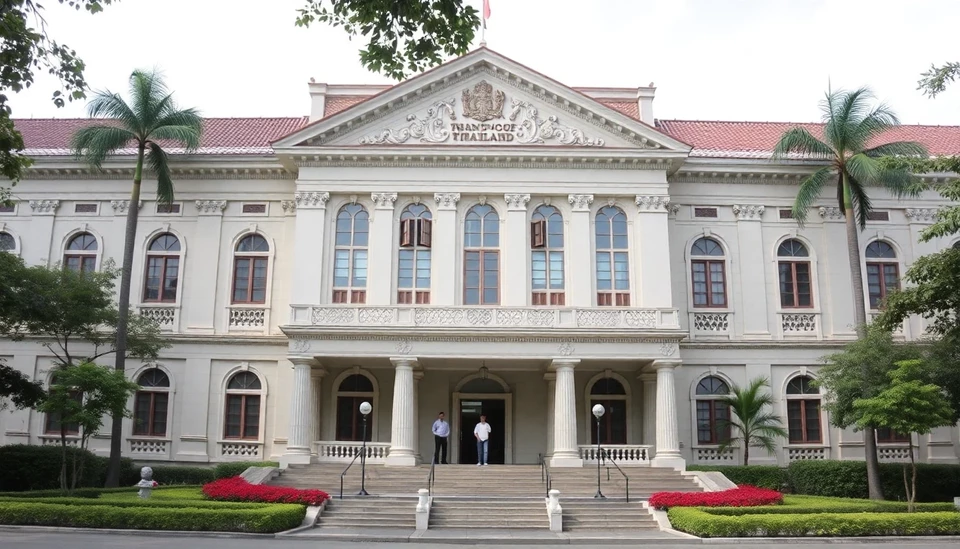
Thailand's economic outlook for 2024 has emerged with disappointing projections, reflecting an overall growth forecast that has been marked down amidst rising international trade risks. In recent analyses released by the Bank of Thailand, the country's GDP growth is now anticipated to be significantly lower than initially expected, fueled by various global economic pressures that seem to linger as potential roadblocks.
Revisions in growth estimates suggest that Thailand, which has traditionally relied on exports and tourism to sustain its economic momentum, faces an an increasingly challenging environment. The Bank of Thailand, acknowledging the pressing concerns, has lowered the growth forecast from 4.0% to 3.3% for the upcoming year. This adjustment serves as a stark reminder of the ongoing volatility in the global market and its direct impact on Thailand's economic performance.
One of the primary drivers of this economic downturn appears to be the shifting dynamics in international trade. As major markets experience slowdowns, particularly in key regions like China and Europe, Thailand's exports, which represent a substantial portion of GDP, could see reduced demand. This decrease is compounded by rising freight costs, supply chain disruptions, and a series of geopolitical tensions that threaten trade relationships.
Moreover, the tourism sector, a vital component of Thailand's economy, continues to grapple with uncertain conditions. While the country has witnessed a resurgence in international travelers post-pandemic, the persistence of global economic woes may deter long-term visitor spending. As consumer confidence wanes abroad, Thailand's ability to attract and maintain the influx of tourists crucial for sustaining growth is put at risk.
Adding another layer of complexity is the Thai government's response to these challenges. Authorities are anticipated to introduce stimulus measures to bolster domestic demand and support vital economic sectors. Nonetheless, the effectiveness of these measures will be closely monitored, as the government grapples with balancing fiscal responsibilities and the necessity for heightened intervention to mitigate economic setbacks.
Looking ahead, analysts urge caution and suggest a vigilant approach to navigating the uncertain waters of the global economy. The Thai financial landscape faces a test of resilience, as stakeholders must prepare for various scenarios that could influence growth trajectories in the near future. The interplay of domestic policies alongside international trade dynamics will be crucial in shaping Thailand's economic endeavors as we move through 2024.
In conclusion, the upcoming year poses challenges for Thailand, whose economic stability is now under pressure from multiple external factors. Stakeholders must remain vigilant as they navigate the risks and strive to foster positive growth in the face of evolving trade landscapes.
#ThailandEconomy #TradeRisks #GDPGrowth #BankOfThailand #GlobalTrade #EconomicOutlook #Tourism #EconomicInstability
Author: Daniel Foster




